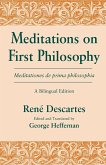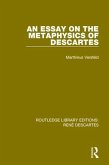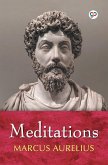William James may have been the greatest thinker in history, but René Descartes was the most important. That is because there would have been no James if there had been no Descartes. True, such comparisons are not to be taken literally. There'd have been no Descartes if there'd been no Aristotle, no Aristotle if there'd been no Plato, etc. But what made the later thinkers great is that they used the discoveries of their predecessors to make further discoveries of their own. Unfortunately, Descartes today is more often reviled than revered. Harry Bracken is not far from wrong in claiming that Descartes is the philosopher philosophers love to hate. The reason is simple. Whoever recognizes Descartes' revolutionary discovery for the great advance that it is, must then confront the psychological challenge it creates. In this short work, I have shown, albeit in nearly outline fashion, that anyone who accepts what is called "modern science" must, to be logically consistent, admit that-apart from two or three major errors-Descartes' worldview is true. That means that modern science not only is not inconsistent with the existence of God and human immortality. Modern science points conclusively to both facts.
Bitte wählen Sie Ihr Anliegen aus.
Rechnungen
Retourenschein anfordern
Bestellstatus
Storno








